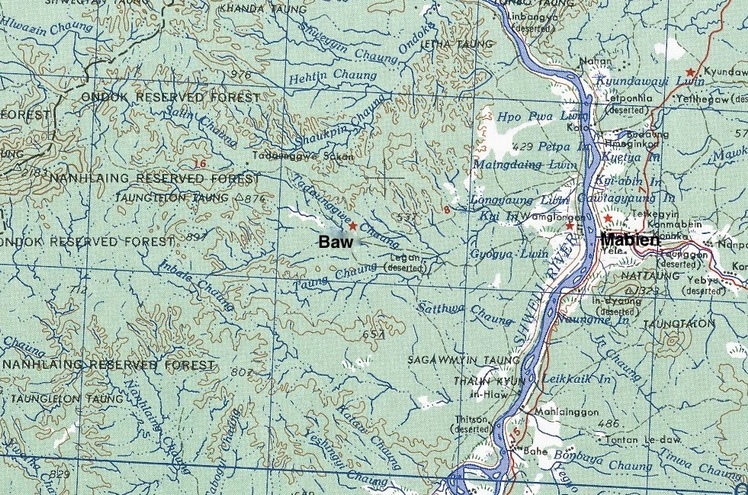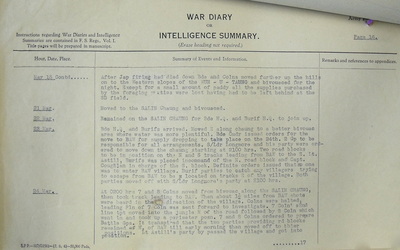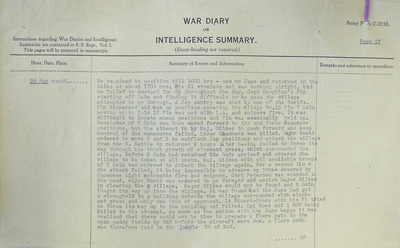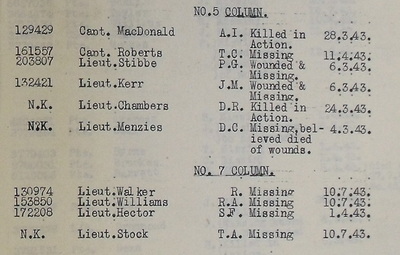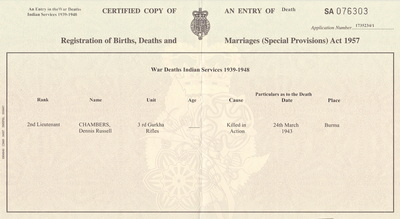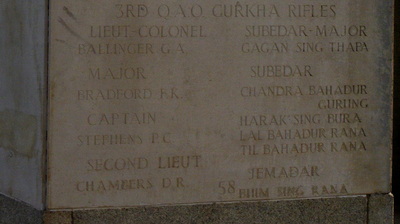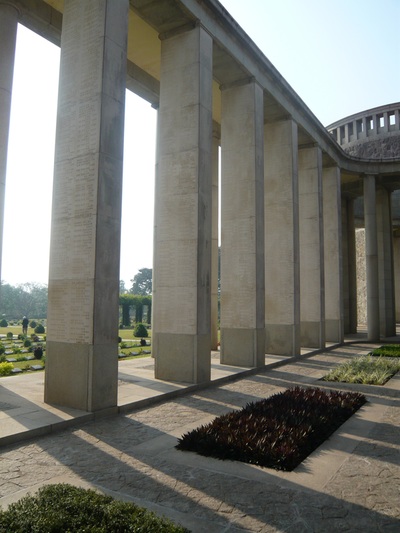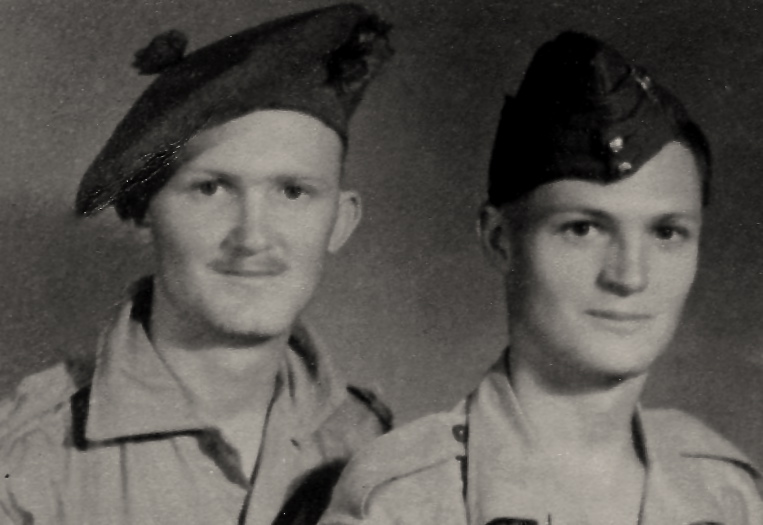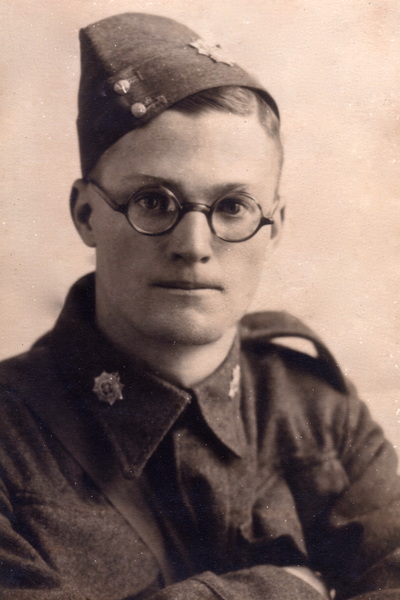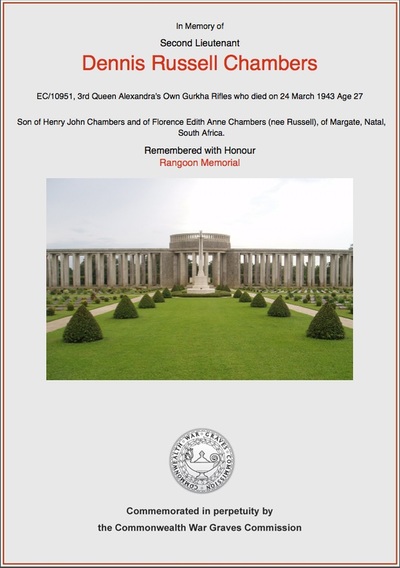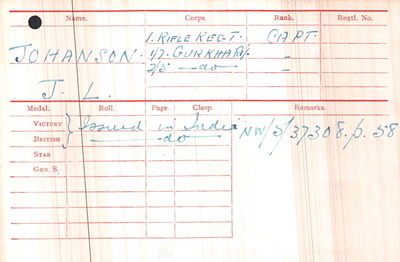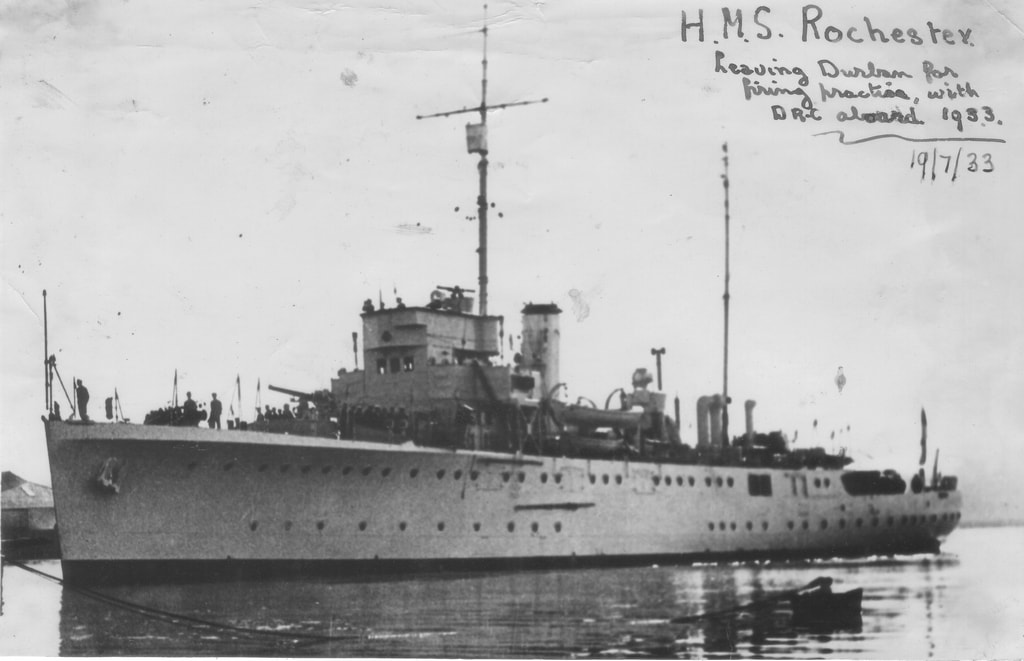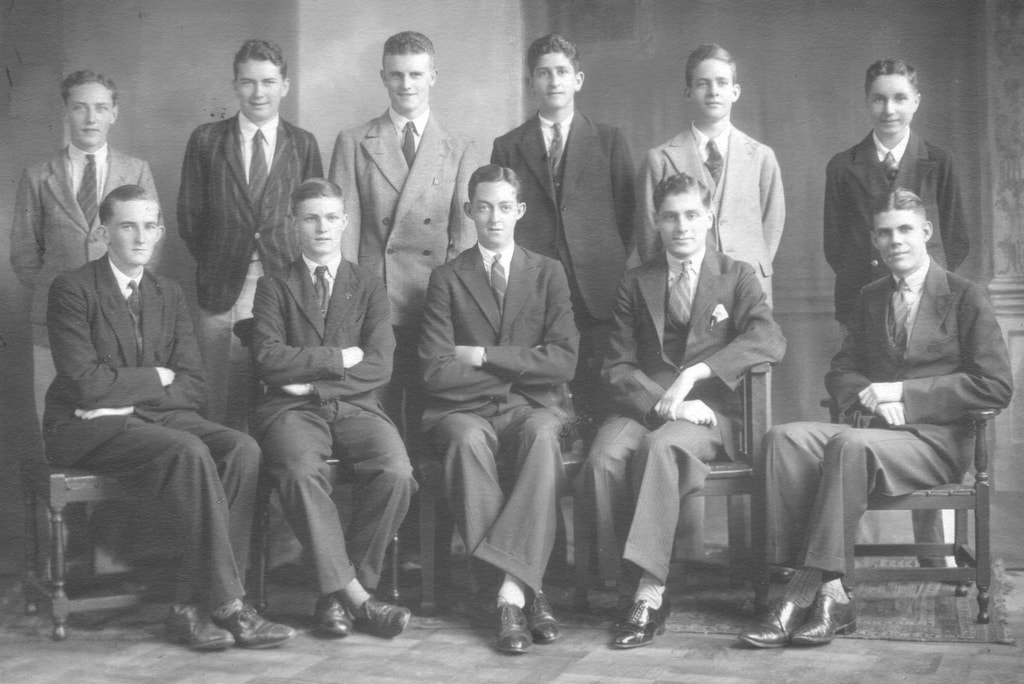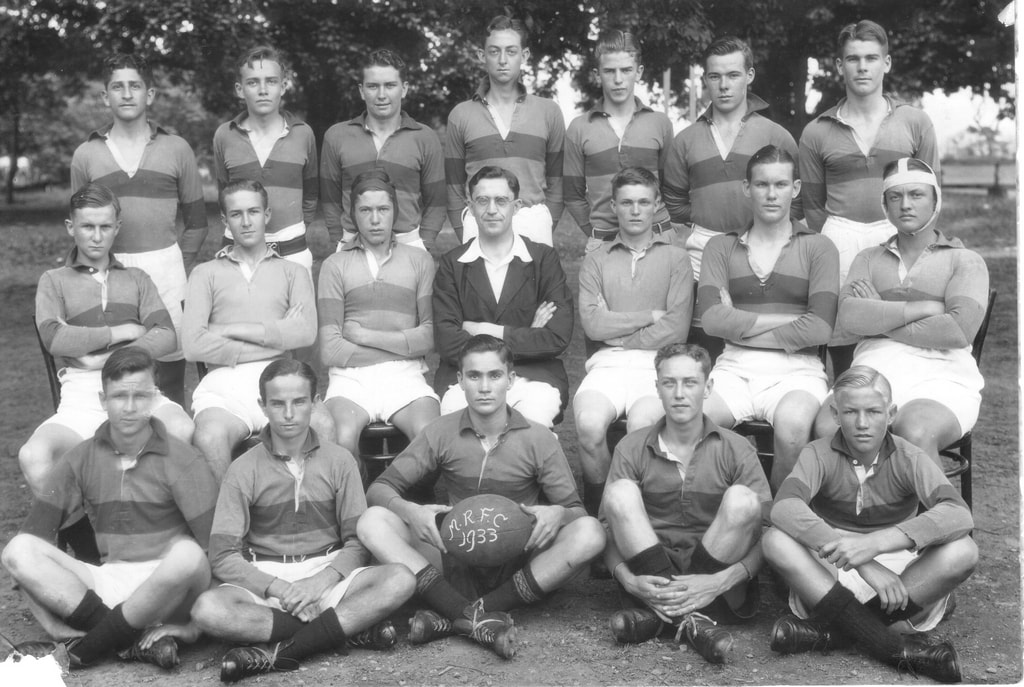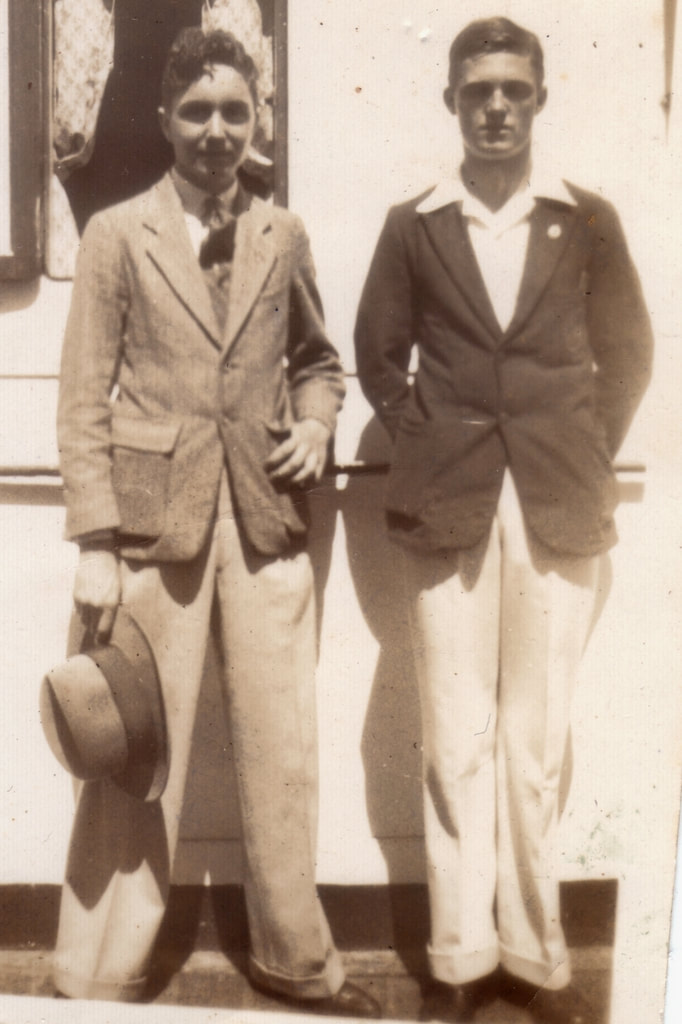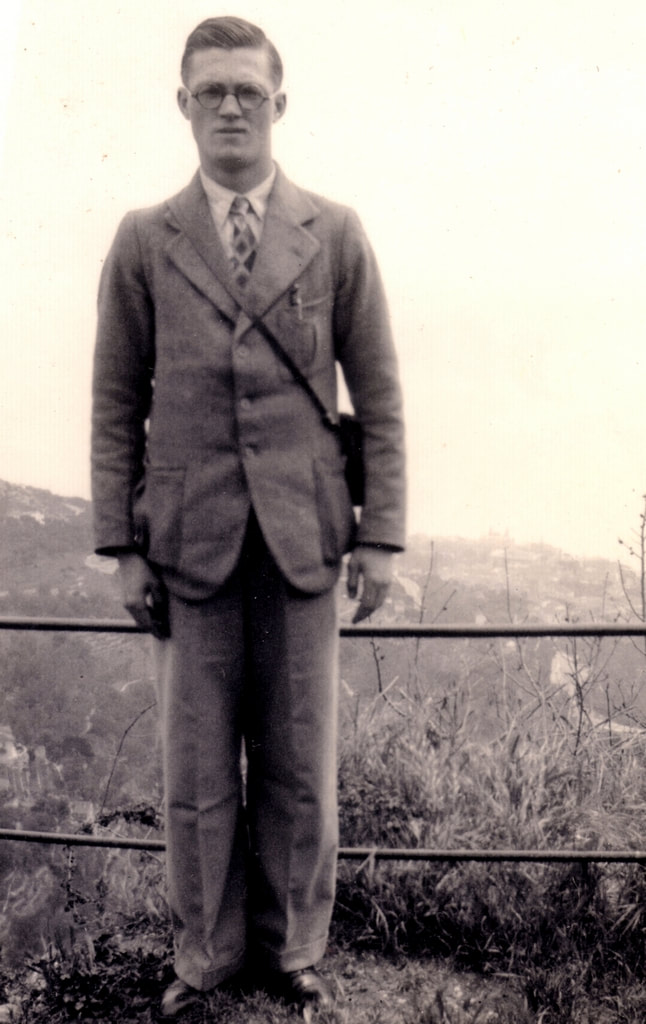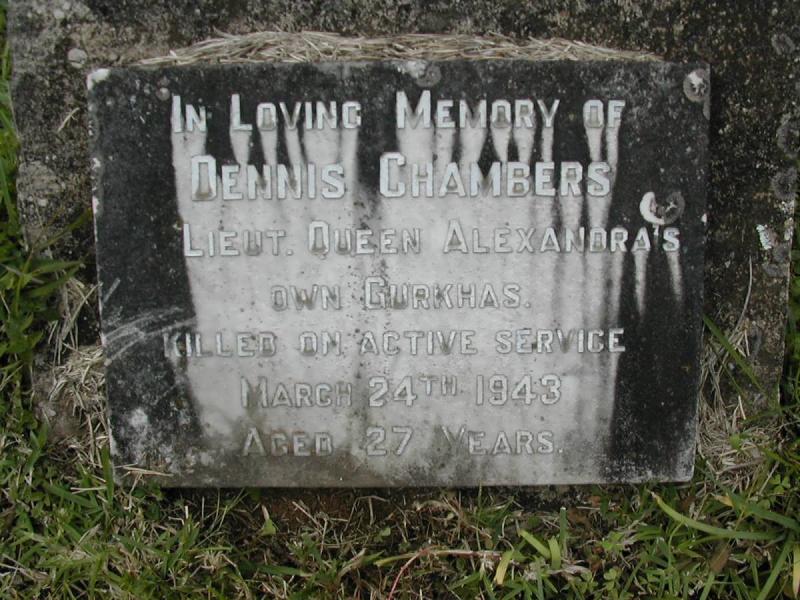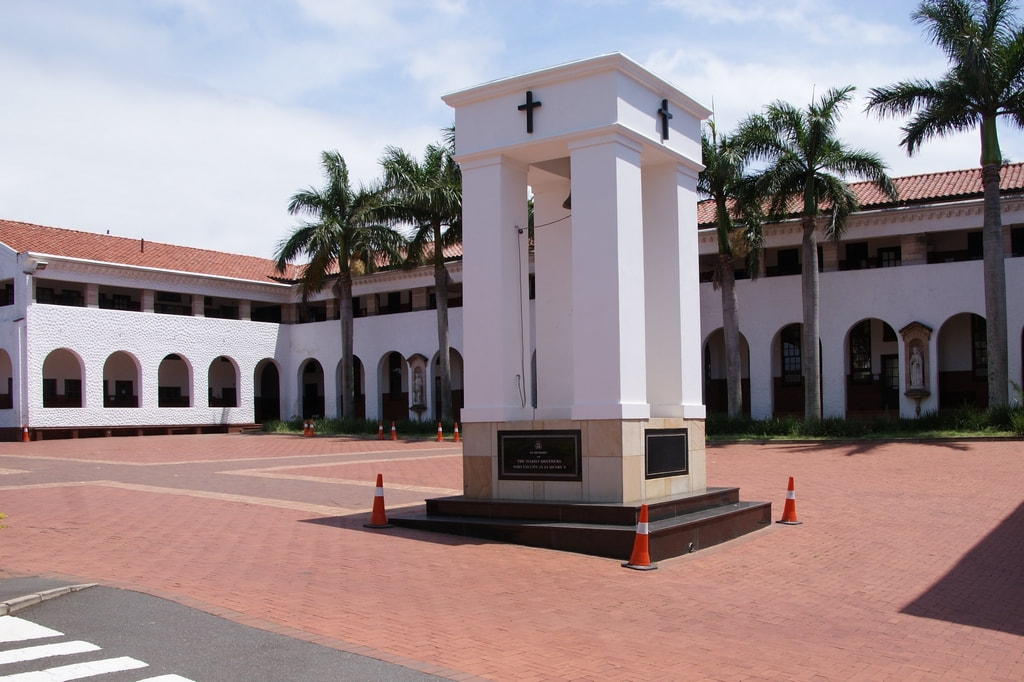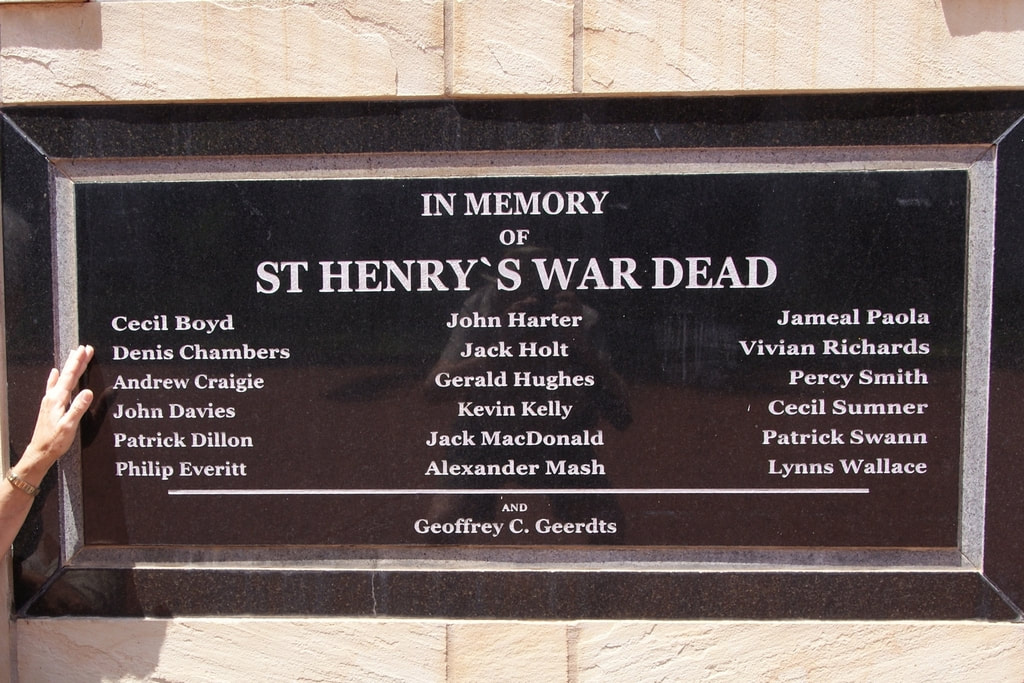Lieutenant Dennis Russell Chambers
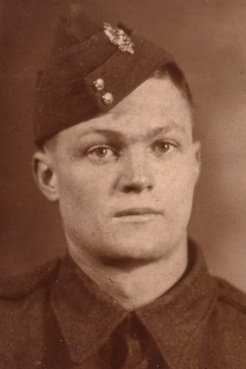 Dennis Russell Chambers, circa 1941.
Dennis Russell Chambers, circa 1941.
EC/10951 Lieutenant Dennis Russell Chambers was the eldest son of Henry John and Florence Edith Anne Chambers of Durban in Natal Province and was born in Durban on the 6th September 1915.
According to his service records, Dennis was of the Roman Catholic faith. His records also state that he began his military service in the South African Naval Forces, having enlisted as a Naval Cadet in June 1932 whilst still at school.
He matriculated from St. Henry's (Marist Brothers) School in Durban in 1933. Dennis had in fact been a founding scholar of the school which began its existence in 1927. In early 1934 he left South Africa to start his studies for the priesthood at Scolisticat Notre Dame de Sion, Saxon-Sion near Vezelise and south of Nancy, in the Meurthe and Moselle Department of France. He obtained his Bachelors degree in Philosophy and Arts from Nancy University on 27th September 1937. He was to have been ordained in 1938, but in late 1937 or 1938 he took leave of absence before this final step to ensure he was doing the right thing. He went to England, and life, in the form of a young woman, and the outbreak of war followed.
At the outset of WW2 Dennis became a soldier in the Royal Army Service Corps and served with this unit up until his commission into the British Indian Army in October 1942. His records state that he was fluent in the Afrikaans and French languages and that he had taken part in the Battle of Crete, between the 20th May-1st June 1941. It was for his involvement in the Middle Eastern theatre and his time on the island of Crete that Dennis was awarded the Africa Star medal.
For some information on his time with the R.A.S.C. please see the family update below from Dennis's niece, Mary Blair.
For more information about the Battle of Crete, please click on the following link: http://en.wikipedia.org/wiki/Battle_of_Crete
By September 1942 Dennis had attained the rank of Sergeant and had accepted a commission into the British Indian Army. He attended the Officers Training School at Belgaum, situated in the western state of Karnataka and passed out as a 2nd Lieutenant on the 8th October 1942.
His War Substantive rank of 2nd Lieutenant was immediately raised to full Lieutenant when he joined the 3rd Queen Alexandra's Own Gurkha Rifles at Dehra Dun. Dennis took to his new role in charge of Gurkha troops and soon developed an affinity with these soldiers. In early January 1943 he was sent a communique telling him to travel to the Indian railway town of Jhansi and await further orders. On the 6th of January Dennis was posted to the 77th Indian Infantry Brigade and took up command of a Gurkha Rifle Platoon in Chindit Column 7, led by Major Kenneth Gilkes.
Several young Gurkha Rifle Officers had been called up to the Chindit Brigade at this very late stage in proceedings. Many of the Brigade's mules had only just arrived along with their handlers from the 10th Gurkha Regiment. It is possible that Wingate felt it necessary to engage officers from fellow Gurkha Regiments to command these men and their animals.
Lieutenant Chambers settled in quickly to his new role, as the Chindits prepared for the final journey down to the Assam-Burma border. Dennis Chambers was remembered most for his devotion to his men; several officers from Column 7 recalled how the young officer had chosen to have his head shaved in an identical fashion to those he commanded. Some Gurkha Riflemen shave their heads, leaving a few strands of hair growing from the top of their scalp, this is so that if they are killed in action, God can reach down and lift them up and into heaven.
Once over the Chindwin River in mid-February 1943, Column 7 were in almost constant contact with Brigadier Wingate and his Brigade Head Quarters. Gilkes's Column was used as a bodyguard for the Chindit leader and shadowed his movements for the first few weeks of the operation. On the 6th March the column was part of a combined Chindit force that attacked a Japanese garrison at the town of Pinlebu, this attack was led by Danish officer, Captain Eric Petersen. Lieutenant Chambers worked closely with Petersen on several occasions during Operation Longcloth, often leading the Dane's Gurkha Defence Platoon.
On the 22nd of March Wingate called up the various columns into bivouac on a hillside to the west of a village called Baw. It was decided to contact rear base and order the largest supply drop so far on the operation. A plan was laid down to secure the local paths and tracks against enemy interference, especially the road to the east of the village which led to the riverside town of Mabein, where the Japanese had a large garrison.
Wingate gave the task of securing the Mabien Road to Captain Coughlan of Column 8, whilst platoons from Column 7 including Petersen's were placed to secure the drop zone area. Unfortunately, having to move through more dense jungle than first anticipated, Coughlan's party failed to secure the road before sunrise on the 24th and stumbled into a Japanese patrol. The enemy opened fire on the ailing platoon and they were forced back north of the road.
Petersen's platoon and another led by Lieutenants Pearce and Chambers came under enemy fire and the supply drop zone seemed compromised and would surely have to be abandoned. Captain Petersen drove his men forward and cleared the Japanese from his sector, he then came across Captain Coughlan who had been slightly wounded. Coughlan explained that his platoon were tied down by strong enemy fire and could not disengage from the area without suffering heavy casualties. Petersen decided on a plan of attack, which he relayed to Coughlan who then went back to his men.
Petersen used his mortar section to cover his advance and employed a flanking manoeuvre led by Lieutenant Jelliss on the Japanese positions, while support units led by Lieuts. Pearce and Chambers staged a frontal attack, with the Bren gun team concentrating fire on the tree tops where enemy snipers were positioned, then held fire enabling Captain Coughlan's platoon to escape their predicament.
Seen below is a map showing the area around the village of Baw including the motor road running east towards the town of Mabien. Please click on the image to bring it foreward on the page.
According to his service records, Dennis was of the Roman Catholic faith. His records also state that he began his military service in the South African Naval Forces, having enlisted as a Naval Cadet in June 1932 whilst still at school.
He matriculated from St. Henry's (Marist Brothers) School in Durban in 1933. Dennis had in fact been a founding scholar of the school which began its existence in 1927. In early 1934 he left South Africa to start his studies for the priesthood at Scolisticat Notre Dame de Sion, Saxon-Sion near Vezelise and south of Nancy, in the Meurthe and Moselle Department of France. He obtained his Bachelors degree in Philosophy and Arts from Nancy University on 27th September 1937. He was to have been ordained in 1938, but in late 1937 or 1938 he took leave of absence before this final step to ensure he was doing the right thing. He went to England, and life, in the form of a young woman, and the outbreak of war followed.
At the outset of WW2 Dennis became a soldier in the Royal Army Service Corps and served with this unit up until his commission into the British Indian Army in October 1942. His records state that he was fluent in the Afrikaans and French languages and that he had taken part in the Battle of Crete, between the 20th May-1st June 1941. It was for his involvement in the Middle Eastern theatre and his time on the island of Crete that Dennis was awarded the Africa Star medal.
For some information on his time with the R.A.S.C. please see the family update below from Dennis's niece, Mary Blair.
For more information about the Battle of Crete, please click on the following link: http://en.wikipedia.org/wiki/Battle_of_Crete
By September 1942 Dennis had attained the rank of Sergeant and had accepted a commission into the British Indian Army. He attended the Officers Training School at Belgaum, situated in the western state of Karnataka and passed out as a 2nd Lieutenant on the 8th October 1942.
His War Substantive rank of 2nd Lieutenant was immediately raised to full Lieutenant when he joined the 3rd Queen Alexandra's Own Gurkha Rifles at Dehra Dun. Dennis took to his new role in charge of Gurkha troops and soon developed an affinity with these soldiers. In early January 1943 he was sent a communique telling him to travel to the Indian railway town of Jhansi and await further orders. On the 6th of January Dennis was posted to the 77th Indian Infantry Brigade and took up command of a Gurkha Rifle Platoon in Chindit Column 7, led by Major Kenneth Gilkes.
Several young Gurkha Rifle Officers had been called up to the Chindit Brigade at this very late stage in proceedings. Many of the Brigade's mules had only just arrived along with their handlers from the 10th Gurkha Regiment. It is possible that Wingate felt it necessary to engage officers from fellow Gurkha Regiments to command these men and their animals.
Lieutenant Chambers settled in quickly to his new role, as the Chindits prepared for the final journey down to the Assam-Burma border. Dennis Chambers was remembered most for his devotion to his men; several officers from Column 7 recalled how the young officer had chosen to have his head shaved in an identical fashion to those he commanded. Some Gurkha Riflemen shave their heads, leaving a few strands of hair growing from the top of their scalp, this is so that if they are killed in action, God can reach down and lift them up and into heaven.
Once over the Chindwin River in mid-February 1943, Column 7 were in almost constant contact with Brigadier Wingate and his Brigade Head Quarters. Gilkes's Column was used as a bodyguard for the Chindit leader and shadowed his movements for the first few weeks of the operation. On the 6th March the column was part of a combined Chindit force that attacked a Japanese garrison at the town of Pinlebu, this attack was led by Danish officer, Captain Eric Petersen. Lieutenant Chambers worked closely with Petersen on several occasions during Operation Longcloth, often leading the Dane's Gurkha Defence Platoon.
On the 22nd of March Wingate called up the various columns into bivouac on a hillside to the west of a village called Baw. It was decided to contact rear base and order the largest supply drop so far on the operation. A plan was laid down to secure the local paths and tracks against enemy interference, especially the road to the east of the village which led to the riverside town of Mabein, where the Japanese had a large garrison.
Wingate gave the task of securing the Mabien Road to Captain Coughlan of Column 8, whilst platoons from Column 7 including Petersen's were placed to secure the drop zone area. Unfortunately, having to move through more dense jungle than first anticipated, Coughlan's party failed to secure the road before sunrise on the 24th and stumbled into a Japanese patrol. The enemy opened fire on the ailing platoon and they were forced back north of the road.
Petersen's platoon and another led by Lieutenants Pearce and Chambers came under enemy fire and the supply drop zone seemed compromised and would surely have to be abandoned. Captain Petersen drove his men forward and cleared the Japanese from his sector, he then came across Captain Coughlan who had been slightly wounded. Coughlan explained that his platoon were tied down by strong enemy fire and could not disengage from the area without suffering heavy casualties. Petersen decided on a plan of attack, which he relayed to Coughlan who then went back to his men.
Petersen used his mortar section to cover his advance and employed a flanking manoeuvre led by Lieutenant Jelliss on the Japanese positions, while support units led by Lieuts. Pearce and Chambers staged a frontal attack, with the Bren gun team concentrating fire on the tree tops where enemy snipers were positioned, then held fire enabling Captain Coughlan's platoon to escape their predicament.
Seen below is a map showing the area around the village of Baw including the motor road running east towards the town of Mabien. Please click on the image to bring it foreward on the page.
Lieutenant-Colonel Cooke, the senior officer in Northern Group and Major Gilkes then approached Petersen and told him that the enemy must be completely ejected from Baw so that the supply drop could resume. Petersen told them that a much larger force than the one he presently commanded would be required to achieve this aim. Major Scott, the commander of Column 8 was given orders to assist Petersen and the two groups moved into position. The men from Column 8 attacked the eastern flank of the enemy whilst Petersen and his men moved head on against the Japanese.
The Chindits fought bravely and after some fierce and bitter battles, drove the Japanese out of the area. Scott and his men had performed valiantly, but had suffered heavy casualties, Lieutenant Pearce and Sergeant Lamb from Petersen's Platoon had done some excellent work with their respective Bren guns and grenade launchers.
Towards the end of the engagement Captain Petersen was seriously wounded when he was shot in the head by a Japanese sniper. He had managed to stem the flow of blood with a field dressing, but then fell unconscious onto the ground. Sadly, Lieutenant Chambers was killed at the village of Baw, when he too was shot by a Japanese sniper.
Captain Leslie Cottrell, who was second in command of Column 7 on Operation Longcloth recalled seeing Chambers move off along a jungle track to check for enemy positions. He stated that Chambers was killed by an enemy sniper perched high in a nearby tree. Cottrell waited for a second shot from the sniper in the hope that the flash from his rifle muzzle would expose his position, but non came.
Captain Petersen remembered the death of Dennis Chambers slightly differently. In his memoirs written after the war he recalled:
Towards the end of the engagement at Baw, I was seriously wounded in the temple by a bullet from a Japanese sniper. I fished my first aid dressing out of my pack and asked one of my men to dress the wound. Soon after I lost consciousness.
I therefore did not attend the end of the attack, but Major Gilkes told me some days later, that Major Scott and his force had completed the onslaught at Baw with impressive speed and determination. Both the enemy and we had many men killed and wounded. Among the fallen was Lieutenant Chambers who was commander of my reserve platoon that day.
Prior to the final assault against the Japanese and shortly before I was wounded, I had sent Chambers out with a patrol to reconnoitre the local area. While he stood and watched the enemy position with his telescope, he was hit in the forehead by a bullet from a Japanese sniper and was killed instantly.
Lieutenant Chambers was buried close to where he fell on the 24th March 1943. After the war was over his grave could not be located or recovered and for this reason he is remembered upon the Rangoon Memorial at Taukkyan War Cemetery. The Rangoon Memorial honours all casualties from the Burma campaign who have no known grave, this numbers some 27,000 all told.
To view Lieutenant Chambers CWGC details, please click on the following link:
http://www.cwgc.org/find-war-dead/casualty/2506861/CHAMBERS,%20DENNIS%20RUSSELL
Seen below are some images in relation to this story, including the 13th King's war diary excerpts for the 24th March 1943. Also shown is Dennis Chambers inscription upon Face 58 of the Rangoon Memorial, his Army death certificate and his entry in the Officers missing in action listings for Operation Longcloth. Please click on any image to bring it forward on the page.
The Chindits fought bravely and after some fierce and bitter battles, drove the Japanese out of the area. Scott and his men had performed valiantly, but had suffered heavy casualties, Lieutenant Pearce and Sergeant Lamb from Petersen's Platoon had done some excellent work with their respective Bren guns and grenade launchers.
Towards the end of the engagement Captain Petersen was seriously wounded when he was shot in the head by a Japanese sniper. He had managed to stem the flow of blood with a field dressing, but then fell unconscious onto the ground. Sadly, Lieutenant Chambers was killed at the village of Baw, when he too was shot by a Japanese sniper.
Captain Leslie Cottrell, who was second in command of Column 7 on Operation Longcloth recalled seeing Chambers move off along a jungle track to check for enemy positions. He stated that Chambers was killed by an enemy sniper perched high in a nearby tree. Cottrell waited for a second shot from the sniper in the hope that the flash from his rifle muzzle would expose his position, but non came.
Captain Petersen remembered the death of Dennis Chambers slightly differently. In his memoirs written after the war he recalled:
Towards the end of the engagement at Baw, I was seriously wounded in the temple by a bullet from a Japanese sniper. I fished my first aid dressing out of my pack and asked one of my men to dress the wound. Soon after I lost consciousness.
I therefore did not attend the end of the attack, but Major Gilkes told me some days later, that Major Scott and his force had completed the onslaught at Baw with impressive speed and determination. Both the enemy and we had many men killed and wounded. Among the fallen was Lieutenant Chambers who was commander of my reserve platoon that day.
Prior to the final assault against the Japanese and shortly before I was wounded, I had sent Chambers out with a patrol to reconnoitre the local area. While he stood and watched the enemy position with his telescope, he was hit in the forehead by a bullet from a Japanese sniper and was killed instantly.
Lieutenant Chambers was buried close to where he fell on the 24th March 1943. After the war was over his grave could not be located or recovered and for this reason he is remembered upon the Rangoon Memorial at Taukkyan War Cemetery. The Rangoon Memorial honours all casualties from the Burma campaign who have no known grave, this numbers some 27,000 all told.
To view Lieutenant Chambers CWGC details, please click on the following link:
http://www.cwgc.org/find-war-dead/casualty/2506861/CHAMBERS,%20DENNIS%20RUSSELL
Seen below are some images in relation to this story, including the 13th King's war diary excerpts for the 24th March 1943. Also shown is Dennis Chambers inscription upon Face 58 of the Rangoon Memorial, his Army death certificate and his entry in the Officers missing in action listings for Operation Longcloth. Please click on any image to bring it forward on the page.
Update 18/01/2015.
Amazingly and wonderfully, within five short weeks of this story being placed on my website, I was contacted by the family of Dennis Chambers.
Niece, Mary Blair told me:
Dear Steve, thank you for all your work that has made this site so useful to relatives of the Chindits. Lieutenant Dennis Russell Chambers was my mother's brother, and I have been trying to piece together my uncle's story on and off for many years. Now you have provided vital information that I did not know.
It was Bernard Fergusson's book, 'Beyond the Chindwin' that led me to your site. In December we had a visit from family who live in France. I had been re-reading the book and mentioned it to my brother-in-law, as he had worked in Burma for several years in the late 1970's. I told him that I would love to visit Burma because of my uncle and gave him the book to read.
He read it from cover to cover with great interest. We could not understand why current maps show Baw in a completely different position to the maps and information in Fergusson's book. When Chris returned to France he searched the web and up popped your recently published article on Dennis, complete with map of the area. A few weeks earlier and the search would have failed.
Since reading your article, I have this wonderful image of Dennis being lifted up to heaven by the strands of hair the Gurkha haircut had left for that purpose, it is a much happier picture to envisage. Also, learning that Dennis was summoned to Jhansi in early January cleared up an error in our knowledge of how his story unfolded, as we believed that he had volunteered for the expedition while in Alexandria.
We have also learned that he was selected at the very last hour to join the Chindit expedition and did not have the benefit of months of training in jungle warfare. However, he came from an adventurous family and grew up on the outskirts of Durban, in a home flanked by tropical jungle and spent much of his formative years exploring the countryside and climbing trees. He was the oldest of 6 children (4 boys, 2 girls), and was a grand older brother to his siblings, reading to them (he was a voracious reader), supervising their homework and leading them on bush expeditions.
Dennis seized every hour, beginning at an early age when he would ride several miles to serve during Mass at Emmanuel Cathedral in Durban, before riding a few more miles up the steep hill to Berea to attend school. His years of training for the priesthood would have prepared him physically and mentally for a role of obedient service, self control, understanding and empathy with people, and leadership. So he would have adapted well to life in the Armed Forces. It is possible he might have been attracted to the Gurkhas because his uncle, Ernest Russell, had previously served in the British Indian Army.
From what I have learned over the years, Dennis joined up on 6 September 1939, his 24th birthday. The photograph of Dennis wearing glasses (seen in the last set of images in this story) is annotated on the back: S/93339 Pte D.R. Chambers, B. Coy. R.A.S.C., "G" Ops London Area, Home Guards, Whitehall, London Nov. 1939. My Mother's address for him in her address book, shows him as Staff Sergeant D.R. Chambers, R.A.S.C., G (Plans), G.H.O., M.E.F. (Middle East Force).
My mother, who had a great memory for detail, recalled that he worked on aerial photographs, identifying buildings etc. From that point up until the Battle of Crete is then a bit of a blank, except that my mother said he was with the 'Commos', a long standing nickname for the men of the R.A.S.C. She said that he only survived because he was sent aboard ship with a message from his commanding officer, and was subsequently ordered by the senior officer on board not to return to the island as it was evident that all was lost.
He was immensely distressed by this and the loss of all the men he had fought alongside. From Crete he went to Alexandria to await orders. Here, by some strange quirk of fate, he met his brother Ronnie, who had served with the 3rd Transvaal Scottish, part of the 5th Infantry Brigade. Ronnie had been captured at the fall of Tobruk, but had escaped from the marching column of POWs by playing dead and had managed to make his way back to Allied Lines. Ronnie was the first member of the immediate family that Dennis he had seen since 1934, so it must have been a poignant meeting. Ronnie said that Dennis was fearless, not ducking for cover when incoming fire was heard.
My mother also recalled that the troopship that took Dennis to Belgaum in India for training as an officer passed tantalisingly close to Durban. He had written home and told his family to keep an eye on the coast (their home high on the Berea gave them a wonderful view over the harbour) and they took this as a clue that he would be travelling via Durban. Another letter told them that Durban was within sight when the ship suddenly changed direction and sailed away, presumably because of a U-boat threat. Dennis wrote, that such was his despair that the longed for reunion with his family had cruelly come so near and yet so far, that he had an overwhelming urge to desert, dive overboard and swim to land, but somehow sense and self-discipline prevailed.
Seen below is a photograph of Dennis and his brother Ronnie, taken during the meeting at Alexandria in Egypt.
Amazingly and wonderfully, within five short weeks of this story being placed on my website, I was contacted by the family of Dennis Chambers.
Niece, Mary Blair told me:
Dear Steve, thank you for all your work that has made this site so useful to relatives of the Chindits. Lieutenant Dennis Russell Chambers was my mother's brother, and I have been trying to piece together my uncle's story on and off for many years. Now you have provided vital information that I did not know.
It was Bernard Fergusson's book, 'Beyond the Chindwin' that led me to your site. In December we had a visit from family who live in France. I had been re-reading the book and mentioned it to my brother-in-law, as he had worked in Burma for several years in the late 1970's. I told him that I would love to visit Burma because of my uncle and gave him the book to read.
He read it from cover to cover with great interest. We could not understand why current maps show Baw in a completely different position to the maps and information in Fergusson's book. When Chris returned to France he searched the web and up popped your recently published article on Dennis, complete with map of the area. A few weeks earlier and the search would have failed.
Since reading your article, I have this wonderful image of Dennis being lifted up to heaven by the strands of hair the Gurkha haircut had left for that purpose, it is a much happier picture to envisage. Also, learning that Dennis was summoned to Jhansi in early January cleared up an error in our knowledge of how his story unfolded, as we believed that he had volunteered for the expedition while in Alexandria.
We have also learned that he was selected at the very last hour to join the Chindit expedition and did not have the benefit of months of training in jungle warfare. However, he came from an adventurous family and grew up on the outskirts of Durban, in a home flanked by tropical jungle and spent much of his formative years exploring the countryside and climbing trees. He was the oldest of 6 children (4 boys, 2 girls), and was a grand older brother to his siblings, reading to them (he was a voracious reader), supervising their homework and leading them on bush expeditions.
Dennis seized every hour, beginning at an early age when he would ride several miles to serve during Mass at Emmanuel Cathedral in Durban, before riding a few more miles up the steep hill to Berea to attend school. His years of training for the priesthood would have prepared him physically and mentally for a role of obedient service, self control, understanding and empathy with people, and leadership. So he would have adapted well to life in the Armed Forces. It is possible he might have been attracted to the Gurkhas because his uncle, Ernest Russell, had previously served in the British Indian Army.
From what I have learned over the years, Dennis joined up on 6 September 1939, his 24th birthday. The photograph of Dennis wearing glasses (seen in the last set of images in this story) is annotated on the back: S/93339 Pte D.R. Chambers, B. Coy. R.A.S.C., "G" Ops London Area, Home Guards, Whitehall, London Nov. 1939. My Mother's address for him in her address book, shows him as Staff Sergeant D.R. Chambers, R.A.S.C., G (Plans), G.H.O., M.E.F. (Middle East Force).
My mother, who had a great memory for detail, recalled that he worked on aerial photographs, identifying buildings etc. From that point up until the Battle of Crete is then a bit of a blank, except that my mother said he was with the 'Commos', a long standing nickname for the men of the R.A.S.C. She said that he only survived because he was sent aboard ship with a message from his commanding officer, and was subsequently ordered by the senior officer on board not to return to the island as it was evident that all was lost.
He was immensely distressed by this and the loss of all the men he had fought alongside. From Crete he went to Alexandria to await orders. Here, by some strange quirk of fate, he met his brother Ronnie, who had served with the 3rd Transvaal Scottish, part of the 5th Infantry Brigade. Ronnie had been captured at the fall of Tobruk, but had escaped from the marching column of POWs by playing dead and had managed to make his way back to Allied Lines. Ronnie was the first member of the immediate family that Dennis he had seen since 1934, so it must have been a poignant meeting. Ronnie said that Dennis was fearless, not ducking for cover when incoming fire was heard.
My mother also recalled that the troopship that took Dennis to Belgaum in India for training as an officer passed tantalisingly close to Durban. He had written home and told his family to keep an eye on the coast (their home high on the Berea gave them a wonderful view over the harbour) and they took this as a clue that he would be travelling via Durban. Another letter told them that Durban was within sight when the ship suddenly changed direction and sailed away, presumably because of a U-boat threat. Dennis wrote, that such was his despair that the longed for reunion with his family had cruelly come so near and yet so far, that he had an overwhelming urge to desert, dive overboard and swim to land, but somehow sense and self-discipline prevailed.
Seen below is a photograph of Dennis and his brother Ronnie, taken during the meeting at Alexandria in Egypt.
Mary also told me that she had two copies of letters from Dennis in her possession. These had originally been sent to his Aunt who lived on the Isle of Wight. The first letter was sent from the Gurkha Regimental Centre at Dehra Dun and was dated 11th January 1942.
"I am off on a job and will be unable to write for a while. If I get bumped off by the Japs the Army will communicate with you. This letter is going to be rather brief and brisk as I am in a hell of a hurry. All my mail is being held for me at the Centre and will be burned if I do not get back. Also will you do me a favour. Please notify my lady love if they get me. ... I must say cheerio now Aunt, until my next letter, love to all, Dennis."
Mary explained; he wrote again to his Aunt, the last letter that we know of on the 6th of February 1943, which would have been shortly after the long march, over eight or nine nights up the Manipur Road to the Imphal plateau.
"Things are going very well with me, except that we are getting too much walking exercise for my liking and that we look like an Xmas tree when fully laden with all our spare bits and pieces. Please excuse the irregularity of my mail but as the BBC are so fond of saying, it's due to circumstances beyond my control. Well paper has run out. Cheerio for the present. Love to all, Dennis."
Dennis's father was only informed of his death on the 19th of July 1943. His mother was determined to gather as much information about his death as she could. On the 23rd of July 1943 she wrote to his unit, and Lieutenant-Colonel J. L. Johanson wrote back from Dehra Dun on the 7th September. It is quite a moving letter, and so I include much of the text below:
It would only be unkind not to be frank or to hold out hopes where there can be none. We have first-hand information that he (Dennis) died in the front line fighting the Japanese. All the little consolation I can offer you in your great sorrow is that he passed in action with honour, as he would have wished, and that he suffered no pain.
Only three days ago I was able to talk with one of the Staff Officers of the expedition for which Dennis was chosen. The first question I asked him was about your son. Though he could only confirm the grievous news, he spoke of Dennis Chambers with the highest praise and of the loss the Army, which needs leaders of his type so urgently, had sustained in his passing.
I myself knew your son well in the short time he was here. I have been a soldier nearly all my life and have never met a more promising young officer or one whom I liked better. There was no task that he would not set to with a will and accomplish to the full satisfaction of his superiors. He was also a delightful companion and friend. The biggest tragedy of war is that it always takes the best from us and leaves so many mothers to mourn their noblest sons.
Your boy's grave lies in distant country still held by our enemies. One day (let us hope before long) it will be British Empire soil again. This will be accomplished by those like your son who willingly made the great sacrifice to regain what has been lost. His spirit will live on, an example to others who must fight to win back and maintain our great heritage.
The Regiment, and his Brother Officers mourn with you in your most grievous loss.
Lt-Col. Johanson, who had served with the Gurkhas since WW1, wrote again in January 1944.
When your letter reached me in October I was on leave. I can only apologise for the very long delay and hope you will forgive me and understand how time presses on the older and experienced officers who have to carry quite a heavy burden while the young ones are finding their feet. We have got a very nice lot of youngsters, but few of them have at present the ability and experience that your son possessed. He was so capable in that he could be just told what was required and left to get on with the job.
There are very few Officers here now who knew Dennis; they come and go so quickly, and I have asked all of them if they have, or know of any, photos that I could send to you. I'm sorry to say I have been unsuccessful in finding any.
It was a most noble and generous gesture on your part to send your hard-earned savings. After much consideration I decided to send the money to the Red Cross to be used for helping Prisoners of War in Japanese hands; amongst them are Gurkhas (some from this Regiment) and so I hope that your money will be the means of helping some of them. I feel that this is what Dennis would have liked, for he was very fond of our grand little men and they very much admired and respected him. They are very quick and keen judges of character and ability, and it takes a very good man to earn their respect so rapidly as Dennis did.
I wish you, dear Mrs. Chambers, all the best that is possible for the year of 1944. It will be a fateful year and a testing one for all of us whether in the frontline or for those like me who can only work behind. It often seems very wrong to me that I, a soldier by profession, should have to sit in safety and see so many fine young fellows go off to battle. I hope I can be of some help to them by working my hardest here and that I shall be able to go on until I can put away my uniform again.
Seen below are a set of final images in relation to this story. These include the photograph of Dennis mentioned earlier in the text, taken in November 1939, not long after he had been posted to the R.A.S.C. Also shown is his CWGC casualty certificate and the Medal index card for Lieutenant-Colonel Johanson, showing his presence in India during the years of WW1. Please click on any image to bring it forward on the page.
"I am off on a job and will be unable to write for a while. If I get bumped off by the Japs the Army will communicate with you. This letter is going to be rather brief and brisk as I am in a hell of a hurry. All my mail is being held for me at the Centre and will be burned if I do not get back. Also will you do me a favour. Please notify my lady love if they get me. ... I must say cheerio now Aunt, until my next letter, love to all, Dennis."
Mary explained; he wrote again to his Aunt, the last letter that we know of on the 6th of February 1943, which would have been shortly after the long march, over eight or nine nights up the Manipur Road to the Imphal plateau.
"Things are going very well with me, except that we are getting too much walking exercise for my liking and that we look like an Xmas tree when fully laden with all our spare bits and pieces. Please excuse the irregularity of my mail but as the BBC are so fond of saying, it's due to circumstances beyond my control. Well paper has run out. Cheerio for the present. Love to all, Dennis."
Dennis's father was only informed of his death on the 19th of July 1943. His mother was determined to gather as much information about his death as she could. On the 23rd of July 1943 she wrote to his unit, and Lieutenant-Colonel J. L. Johanson wrote back from Dehra Dun on the 7th September. It is quite a moving letter, and so I include much of the text below:
It would only be unkind not to be frank or to hold out hopes where there can be none. We have first-hand information that he (Dennis) died in the front line fighting the Japanese. All the little consolation I can offer you in your great sorrow is that he passed in action with honour, as he would have wished, and that he suffered no pain.
Only three days ago I was able to talk with one of the Staff Officers of the expedition for which Dennis was chosen. The first question I asked him was about your son. Though he could only confirm the grievous news, he spoke of Dennis Chambers with the highest praise and of the loss the Army, which needs leaders of his type so urgently, had sustained in his passing.
I myself knew your son well in the short time he was here. I have been a soldier nearly all my life and have never met a more promising young officer or one whom I liked better. There was no task that he would not set to with a will and accomplish to the full satisfaction of his superiors. He was also a delightful companion and friend. The biggest tragedy of war is that it always takes the best from us and leaves so many mothers to mourn their noblest sons.
Your boy's grave lies in distant country still held by our enemies. One day (let us hope before long) it will be British Empire soil again. This will be accomplished by those like your son who willingly made the great sacrifice to regain what has been lost. His spirit will live on, an example to others who must fight to win back and maintain our great heritage.
The Regiment, and his Brother Officers mourn with you in your most grievous loss.
Lt-Col. Johanson, who had served with the Gurkhas since WW1, wrote again in January 1944.
When your letter reached me in October I was on leave. I can only apologise for the very long delay and hope you will forgive me and understand how time presses on the older and experienced officers who have to carry quite a heavy burden while the young ones are finding their feet. We have got a very nice lot of youngsters, but few of them have at present the ability and experience that your son possessed. He was so capable in that he could be just told what was required and left to get on with the job.
There are very few Officers here now who knew Dennis; they come and go so quickly, and I have asked all of them if they have, or know of any, photos that I could send to you. I'm sorry to say I have been unsuccessful in finding any.
It was a most noble and generous gesture on your part to send your hard-earned savings. After much consideration I decided to send the money to the Red Cross to be used for helping Prisoners of War in Japanese hands; amongst them are Gurkhas (some from this Regiment) and so I hope that your money will be the means of helping some of them. I feel that this is what Dennis would have liked, for he was very fond of our grand little men and they very much admired and respected him. They are very quick and keen judges of character and ability, and it takes a very good man to earn their respect so rapidly as Dennis did.
I wish you, dear Mrs. Chambers, all the best that is possible for the year of 1944. It will be a fateful year and a testing one for all of us whether in the frontline or for those like me who can only work behind. It often seems very wrong to me that I, a soldier by profession, should have to sit in safety and see so many fine young fellows go off to battle. I hope I can be of some help to them by working my hardest here and that I shall be able to go on until I can put away my uniform again.
Seen below are a set of final images in relation to this story. These include the photograph of Dennis mentioned earlier in the text, taken in November 1939, not long after he had been posted to the R.A.S.C. Also shown is his CWGC casualty certificate and the Medal index card for Lieutenant-Colonel Johanson, showing his presence in India during the years of WW1. Please click on any image to bring it forward on the page.
The final piece of information supplied by Mary is a letter from the Indian Red Cross, dated October 1944. In reply to the family enquiry for information around the circumstances of Dennis's demise, the Red Cross relayed the following:
We regret that we have been unable to locate the grave site of Lieutenant Chambers. We have however, received the following information from 2nd Echelon, which we hope may be of help to you.
"Lieutenant Chambers 3 Gurkha Rifles, attached 13th Battalion of The King's Regiment; was a member of No. 14 Platoon serving with No. 7 Column of Brigadier Wingate's Burma Expedition. Early in the morning of 24th March 1943, the column was approaching the village of BAW when automatic fire halted the column. Lieutenant Chambers with a party went forward in the direction of the enemy. Firing ensued and it was later reported that Lieutenant Chambers had been killed.
After the finish of the skirmish with the Japanese near the village of Baw, the body was discovered and recovered by a brother officer and brought back and buried in the Platoon area. He had been shot through the head. The deduction is that the body is buried near the village of Baw in Burma."
The determination of the Chambers family, to find out as much information as they could in relation to their son's time and sad death in Burma is of great credit to them. Indeed, they were successful in discovering far more than most in regards to casualties from the first Chindit Operation. I am extremely pleased to have perhaps added just that little bit more to the story of an exceedingly courageous and devoted family man.
I would like to take this opportunity to thank Mary Blair for all her invaluable help in bringing this story to these website pages.
We regret that we have been unable to locate the grave site of Lieutenant Chambers. We have however, received the following information from 2nd Echelon, which we hope may be of help to you.
"Lieutenant Chambers 3 Gurkha Rifles, attached 13th Battalion of The King's Regiment; was a member of No. 14 Platoon serving with No. 7 Column of Brigadier Wingate's Burma Expedition. Early in the morning of 24th March 1943, the column was approaching the village of BAW when automatic fire halted the column. Lieutenant Chambers with a party went forward in the direction of the enemy. Firing ensued and it was later reported that Lieutenant Chambers had been killed.
After the finish of the skirmish with the Japanese near the village of Baw, the body was discovered and recovered by a brother officer and brought back and buried in the Platoon area. He had been shot through the head. The deduction is that the body is buried near the village of Baw in Burma."
The determination of the Chambers family, to find out as much information as they could in relation to their son's time and sad death in Burma is of great credit to them. Indeed, they were successful in discovering far more than most in regards to casualties from the first Chindit Operation. I am extremely pleased to have perhaps added just that little bit more to the story of an exceedingly courageous and devoted family man.
I would like to take this opportunity to thank Mary Blair for all her invaluable help in bringing this story to these website pages.
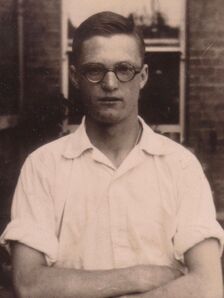 Dennis Chambers in 1939.
Dennis Chambers in 1939.
Update 14/06/2021.
I was delighted to receive the following email contact from Mary Blair with an update in relation to her uncle's wartime service:
Dear Steve, I can't tell you how often I have started an email in my mind to tell you how very much I enjoyed your dogged determination in uncovering the story of your own grandfather, peeling away each obscuring layer of the hidden past until you got to the heart of the matter. Well done! And great that you, along with your mother, sister and brother, got to visit Burma together to complete the story.
I have so enjoyed digging into the website on many occasions. Interesting to note that three officers in No. 7 Column were French speakers (Gilkes, Cottrell and Chambers) who had spent time in Paris, and that Major MacPherson of the Burma Rifles was a fellow South African, and he and Dennis spoke Afrikaans. Did they ever manage to converse together in these languages, one wonders, in moments of rest and respite while in bivouac perhaps - a happy thought. However being dog tired and with the need to remain quiet, perhaps there were no opportunities for such pleasantries.
I have managed to uncover quite a bit more about my Uncle Dennis. I followed your advice and wrote away for his war service records and once they were to hand I could complete more of his story. More work for you I'm afraid to make amendments to his webpage! So here are some additions for your website, primarily to state that he was in the Commandos and to fill in a bit about Crete and the Middle East.
The war record of Dennis Russell Chambers
Having completed his basic training with RASC, Dennis was transferred to their HQ in Norwich in February 1940. He was an early volunteer for the Commandos when during June 1940 volunteers were sought for "special service of a hazardous nature", and was posted to No. 7 Commando on 8 August 1940. Much of their training took place in the west of Scotland. On 28 January 1941 the three Glen ships carrying the Commandos as Force Z (No. 7 Commando on the Glengyle) sailed from the Firth of Clyde en route to Suez via the Cape. They arrived at Cape Town on 19 February (where Force Z was renamed Layforce), and were due to land at Durban on 23 February, where Dennis had high hopes of seeing his home and family for the first time since 1934. Sadly this much anticipated meeting did not happen, as within sight of the harbour the convoy was ordered out to the open sea as the pocket battleship, the Admiral Scheer, had been sighted in the area. This was the moment when Dennis had to control his urge to dive overboard and swim for home, such was his longing to see his family. But training and self-discipline prevailed.
The convoy reached Suez on 7 March 1941, disembarked Middle East on 11 March 1941, and No. 7 Commando, now renamed "A" Battalion Layforce was given acclimatisation leave till 28 March. On 5 April Dennis was posted to HQ Layforce. Having embarked at Ismalia on 8 April, "A" Battalion took part in the not very successful attack on Bardia between 15 and 21 April 1941 (Operation Addition), the first taste of action for Dennis. In early May, Dennis was appointed unpaid Acting Corporal in the HQ establishment. Then on 24 May the Commandos embarked at Alexandria for Crete. HQ Layforce disembarked at Suda Bay around midnight on 25 May to find that evacuation was in full swing, resulting in most of their equipment being abandoned in the chaos. Instead of defending Crete the Commandos ended up safeguarding the retreat to Sphakia, a nightmare task of five nights and days for which they were now totally ill-equipped.
The men of HQ Layforce, Dennis included, were on the last ship evacuating troops from Crete to Alexandria on the night of 31 May 1941: this was the bitter memory Dennis had of being ordered to remain on board, and of comrades being abandoned to their fate. Crete was lost, but during the battle Hitler's crack paratroopers were totally expended against the fierce Allied resistance to its capture. HQ Layforce disembarked at Alexandria on 1 June, and on 2 June Dennis was granted the pay of his unpaid acting corporal rank of the past 21 days and soon afterwards the rank of corporal was confirmed. After Crete the Commandos were in disarray, with most of "A" and "D" Battalions killed in action or prisoners of war on Crete, and many of the men began to return to their original units.
I was delighted to receive the following email contact from Mary Blair with an update in relation to her uncle's wartime service:
Dear Steve, I can't tell you how often I have started an email in my mind to tell you how very much I enjoyed your dogged determination in uncovering the story of your own grandfather, peeling away each obscuring layer of the hidden past until you got to the heart of the matter. Well done! And great that you, along with your mother, sister and brother, got to visit Burma together to complete the story.
I have so enjoyed digging into the website on many occasions. Interesting to note that three officers in No. 7 Column were French speakers (Gilkes, Cottrell and Chambers) who had spent time in Paris, and that Major MacPherson of the Burma Rifles was a fellow South African, and he and Dennis spoke Afrikaans. Did they ever manage to converse together in these languages, one wonders, in moments of rest and respite while in bivouac perhaps - a happy thought. However being dog tired and with the need to remain quiet, perhaps there were no opportunities for such pleasantries.
I have managed to uncover quite a bit more about my Uncle Dennis. I followed your advice and wrote away for his war service records and once they were to hand I could complete more of his story. More work for you I'm afraid to make amendments to his webpage! So here are some additions for your website, primarily to state that he was in the Commandos and to fill in a bit about Crete and the Middle East.
The war record of Dennis Russell Chambers
Having completed his basic training with RASC, Dennis was transferred to their HQ in Norwich in February 1940. He was an early volunteer for the Commandos when during June 1940 volunteers were sought for "special service of a hazardous nature", and was posted to No. 7 Commando on 8 August 1940. Much of their training took place in the west of Scotland. On 28 January 1941 the three Glen ships carrying the Commandos as Force Z (No. 7 Commando on the Glengyle) sailed from the Firth of Clyde en route to Suez via the Cape. They arrived at Cape Town on 19 February (where Force Z was renamed Layforce), and were due to land at Durban on 23 February, where Dennis had high hopes of seeing his home and family for the first time since 1934. Sadly this much anticipated meeting did not happen, as within sight of the harbour the convoy was ordered out to the open sea as the pocket battleship, the Admiral Scheer, had been sighted in the area. This was the moment when Dennis had to control his urge to dive overboard and swim for home, such was his longing to see his family. But training and self-discipline prevailed.
The convoy reached Suez on 7 March 1941, disembarked Middle East on 11 March 1941, and No. 7 Commando, now renamed "A" Battalion Layforce was given acclimatisation leave till 28 March. On 5 April Dennis was posted to HQ Layforce. Having embarked at Ismalia on 8 April, "A" Battalion took part in the not very successful attack on Bardia between 15 and 21 April 1941 (Operation Addition), the first taste of action for Dennis. In early May, Dennis was appointed unpaid Acting Corporal in the HQ establishment. Then on 24 May the Commandos embarked at Alexandria for Crete. HQ Layforce disembarked at Suda Bay around midnight on 25 May to find that evacuation was in full swing, resulting in most of their equipment being abandoned in the chaos. Instead of defending Crete the Commandos ended up safeguarding the retreat to Sphakia, a nightmare task of five nights and days for which they were now totally ill-equipped.
The men of HQ Layforce, Dennis included, were on the last ship evacuating troops from Crete to Alexandria on the night of 31 May 1941: this was the bitter memory Dennis had of being ordered to remain on board, and of comrades being abandoned to their fate. Crete was lost, but during the battle Hitler's crack paratroopers were totally expended against the fierce Allied resistance to its capture. HQ Layforce disembarked at Alexandria on 1 June, and on 2 June Dennis was granted the pay of his unpaid acting corporal rank of the past 21 days and soon afterwards the rank of corporal was confirmed. After Crete the Commandos were in disarray, with most of "A" and "D" Battalions killed in action or prisoners of war on Crete, and many of the men began to return to their original units.
Mary's update continues:
Meanwhile the war in the Middle East had entered a critical phase. General Wavell's offensive in the Western Desert (Battleaxe), began on 15 June 1941 and by 17 June had been repulsed by Rommel, leaving Tobruk isolated. General Auchinleck was appointed to replace General Wavell as Commander-in-Chief in the Middle East on 21 June. A long and intensive period of preparation followed for General Auchinleck's offensive (Crusader). On 21 July 1941, Dennis was posted to the Depot Commando, and on 23 July to GHQ Middle East Command. On 1 August he was promoted to acting Staff Sergeant.
In November he moved to HQ 8th Army, and became substantive Staff Sergeant on 20 April 1942. At HQ Dennis would have been involved in the huge exercise of building up equipment and supplies for the offensive to relieve Tobruk, which began on 18 November 1941. It was during this battle that Dennis' younger brother Ronnie, serving with the South African 5th Infantry Brigade, was captured on 23 November when the Brigade was destroyed at Sidi Rezegh, but he managed to escape and make his way back to Allied lines. Somehow or other Dennis and Ronnie managed to meet in Alexandria in one of those happy quirks of fate that war can bring. Tobruk was relieved at the end of November, but in mid-December the offensive faltered when Axis forces withdrawn from the Russian Front during winter reinforced the Desert battle, and British naval supremacy in the Mediterranean vital to the Allies in the Western Desert was lost. By late January 1942 Rommel had counter-punched, pushed the Allied front back several hundred miles, retaken Benghazi and captured large quantities of equipment and stores that General Auchinleck had been building up for an Allied offensive that was too late in coming. Another change of command followed and another period of build up. Sadly the war that Dennis experienced seemed to march from one apparently dismal Allied failure to another.
Meanwhile the war in the Middle East had entered a critical phase. General Wavell's offensive in the Western Desert (Battleaxe), began on 15 June 1941 and by 17 June had been repulsed by Rommel, leaving Tobruk isolated. General Auchinleck was appointed to replace General Wavell as Commander-in-Chief in the Middle East on 21 June. A long and intensive period of preparation followed for General Auchinleck's offensive (Crusader). On 21 July 1941, Dennis was posted to the Depot Commando, and on 23 July to GHQ Middle East Command. On 1 August he was promoted to acting Staff Sergeant.
In November he moved to HQ 8th Army, and became substantive Staff Sergeant on 20 April 1942. At HQ Dennis would have been involved in the huge exercise of building up equipment and supplies for the offensive to relieve Tobruk, which began on 18 November 1941. It was during this battle that Dennis' younger brother Ronnie, serving with the South African 5th Infantry Brigade, was captured on 23 November when the Brigade was destroyed at Sidi Rezegh, but he managed to escape and make his way back to Allied lines. Somehow or other Dennis and Ronnie managed to meet in Alexandria in one of those happy quirks of fate that war can bring. Tobruk was relieved at the end of November, but in mid-December the offensive faltered when Axis forces withdrawn from the Russian Front during winter reinforced the Desert battle, and British naval supremacy in the Mediterranean vital to the Allies in the Western Desert was lost. By late January 1942 Rommel had counter-punched, pushed the Allied front back several hundred miles, retaken Benghazi and captured large quantities of equipment and stores that General Auchinleck had been building up for an Allied offensive that was too late in coming. Another change of command followed and another period of build up. Sadly the war that Dennis experienced seemed to march from one apparently dismal Allied failure to another.
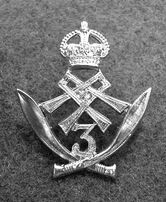
The entry of Japan into the war at Pearl Harbor on 7 December 1941 opened a new theatre of war in the east. There was a great need for officers to serve there, and Dennis was offered an emergency war commission in the British Indian Army. He probably seized the opportunity with open arms, eager to get away from the desert and the slow grind of preparing for yet another armoured offensive. His 1 year and 87 days of Middle East service ended on 9 May 1942. On 10 May 1942 he embarked at Suez, sailing in all probability on the HMS Dunhera, which arrived in Bombay on 21 May, destined for the Officer Cadet Training Unit at Belgaum in India.
After officer training that was compressed into a few short months, he was discharged from RASC on 7 October 1942 and commissioned on 8 October as 2nd Lieutenant in His Majesty's Land Forces Indian Army, and posted to the 3rd Queen Alexandra's Own Gurkha Rifles (cap badge seen to the left) at Dehra Dun. On 6 January 1943 he was attached to 77 Indian Infantry Brigade, the Chindits. On 24 March 1943 he was killed in action near Baw in Burma. Ironically the order promoting him to substantive Lieutenant was only published on 1 June 1943 (I.A.O. 1150) two months after his death, and thanks to the post-dispersal lack of information on the fate of the Chindits, the official KIA notice only came on 23 July 1943. The Rangoon Memorial at Taukkyan War Cemetery erroneously records his rank as Second-Lieutenant, and identifies him by his Emergency Commission number of EC/10951, with no link to his RASC number of S/93339.
After officer training that was compressed into a few short months, he was discharged from RASC on 7 October 1942 and commissioned on 8 October as 2nd Lieutenant in His Majesty's Land Forces Indian Army, and posted to the 3rd Queen Alexandra's Own Gurkha Rifles (cap badge seen to the left) at Dehra Dun. On 6 January 1943 he was attached to 77 Indian Infantry Brigade, the Chindits. On 24 March 1943 he was killed in action near Baw in Burma. Ironically the order promoting him to substantive Lieutenant was only published on 1 June 1943 (I.A.O. 1150) two months after his death, and thanks to the post-dispersal lack of information on the fate of the Chindits, the official KIA notice only came on 23 July 1943. The Rangoon Memorial at Taukkyan War Cemetery erroneously records his rank as Second-Lieutenant, and identifies him by his Emergency Commission number of EC/10951, with no link to his RASC number of S/93339.
My great thanks go once again to Mary for her informative update in regards Dennis' full wartime service. Seen below is a gallery of new images in relation to his life pre-war and to the places back home in South Africa where he is remembered. Please click on any image to bring it forward on the page.
Copyright © Steve Fogden December 2014/15.
